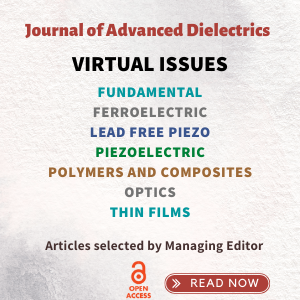This book is a comprehensive guide on emerging cooling technologies for processors in microelectronics. It covers various topics such as chip-embedded two-phase cooling, monolithic microfluidic cooling, numerical modeling, and advances in materials engineering for conduction-limited direct contact cooling, with a goal to remedy high heat flux issues.
The book also discusses the co-design of thermal and electromagnetic properties for the development of light and ultra-high efficiency electric motors. It provides an in-depth analysis of the scaling limits, challenges, and opportunities in embedded cooling, including high power RF amplifiers and self-emissive and liquid crystal displays. Its analysis of emerging cooling technologies provides a roadmap for the future of cooling technology in microelectronics.
This book is a good starting point for the electrical and thermal engineers, as well as MS and PhD students, interested in understanding and collaboratively tackling the complex and multidisciplinary field of microelectronics device (embedded) cooling. A basic knowledge of heat conduction and convection is required.
Sample Chapter(s)
Chapter 1: Compact Thermal Modeling of Emerging Cooling Technologies for Processors
Contents:
- Compact Thermal Modeling of Emerging Cooling Technologies for Processors (Zihao Yuan, Sherief Reda, and Ayse K Coskun)
- Microscale Evaporation for High Heat Flux Applications (Damena D Agonafer, Mun Mun Nahar, Binjian Ma, Zhikai Yang, Quan H Chau, Erdong Song, Jorge Padilla, and Madhusudan Iyengar)
- Numerical Modeling of Embedded Two-Phase Cooling in Silicon Microelectronics (Daniel Lorenzini and Yogendra Joshi)
- Chip-Embedded Two-Phase Cooling (Timothy Chainer, Pritish Parida, and Mark Schultz)
- Embedded Cooling of High-Power RF Amplifiers (John Ditri)
- Thermal Characteristics and Management Scheme of Self-Emissive and Liquid Crystal Displays (Sungki Kim)
- Advances in Materials Engineering for Conduction-limited Direct Contact Cooling (Arden L Moore)
- Monolithic Microfluidic Cooling Using Micropin-Fin Arrays for Local High Heat Flux Remediation: Design Considerations, Experimental Validation, and FPGA Integration (Thomas Sarvey, Ankit Kaul, and Muhannad S Bakir)
- Recent Experimental and Modeling Advances in Two-Phase Embedded Microfluidic Cooling (Todd A Kingston, Justin A Weibel, and Suresh V Garimella)
- Scaling Limits, Challenges, and Opportunities in Embedded Cooling (Srikanth Rangarajan, Scott N Schiffres, and Bahgat Sammakia)
- Co-Design of Thermal and Electromagnetics for Development of Light and Ultrahigh Efficiency Electric Motors (Ziaur Rahman, Michael Ohadi, and David Deisenroth)
Readership: Electrical, packaging and thermal engineers, as well as Mechanical Engineering and Electronic Engineering MS and PhD students interested to understand and collaboratively tackle the complex and multidisciplinary field of microelectronics device (embedded) cooling.

Madhu Iyengar is a Principal Engineer at Google and a lead in innovative product development and path-finding for IT hardware and physical infrastructure, including chip packages, server systems, and data centers. Madhu is also a Technical Lead Manager with technical and managerial responsibilities, and with a mission to develop and deliver excellent thermal systems, products, and advanced technologies, with a focus on end-to-end, chip-to-chiller, infrastructure stack optimization and innovation opportunities, in collaboration with cross-functional partners. Prior to working at Google, Madhu was a Hardware Architect/Engineer at Facebook, and a Senior Engineer at IBM. He has co-authored over 115 technical papers in journals and conference proceedings, holds more than 290 US Patents, is an elected Fellow of the American Society of Mechanical Engineers (ASME), and a Member of IEEE and ASHRAE. Madhu has served as an Associate Editor for the IEEE Electronics Packaging Society CPMT Transactions, for the ASME Journal of Electronic Packaging, and for the Electronics Cooling magazine, respectively. He has also served as a voting member of the ASHRAE TC9.9 Mission Critical (Data Center) Facilities committee, and as the General Chair of the 2016 IEEE ITherm Conference. He is currently Chair for Thermal Technical Working Group for IEEE Electronics Packaging Society Roadmap on Heterogeneous Integration. Madhu has a PhD in Mechanical Engineering from the University of Minnesota, and a BE in Mechanical Engineering from the University of Pune, India.

Justin A Weibel is an Associate Professor in the School of Mechanical Engineering at Purdue University and Director of the Cooling Technologies Research Center (CTRC), a graduated NSF I/UCRC that addresses research and development needs of companies and organizations in the area of high-performance heat removal from compact spaces. He received his PhD in 2012 and BSME in 2007, both from Purdue University. Dr Weibel's research group explores methodologies for prediction and control of heat transport to enhance the performance and efficiency of thermal management technologies and energy transfer processes. He has been a key contributor to the development of transformative cooling technologies supported by the DARPA TGP, DARPA ICECool, NAVSEA NEEC, ONR NEPTUNE, SRC CHIRP, ARPA-E ASCEND, and ARPA-E COOLERCHIPS programs, in addition to numerous sponsored research projects that transition these technologies to industry. Dr Weibel has supervised 26 PhD and 14 MS students, current and former, and co-authored over 190 refereed journal and conference papers. He has been recognized as an Outstanding Engineering Teacher and Outstanding Faculty Mentor in the College of Engineering at Purdue University. He recently received the 2020 ASME Electronic & Photonic Packaging Division (EPPD) Young Engineer Award and 2021 ASME K-16 Outstanding Early Faculty Career in Thermal Management Award.

Mehdi Asheghi received his PhD degree from Stanford University, Stanford, CA, USA, in 1999. He completed his post-doctoral training at Stanford University in 2000. He is currently an Adjunct Professor with the Department of Mechanical Engineering, Stanford University, where he has co-advised/supervised 25 PhD students, and is involved in more than ten major research project initiatives funded by the NSF, DARPA, SRC, ARPA-E, and high-tech industry (Google, Intel, AMD, ADI, FORD, TOYOTA, and so on). He is the author of more than 200 book chapters, journal publications, and fully reviewed conference papers. His research interests include, but are not limited to, the following topics: design and optimization of advanced microcoolers for microprocessors and power electronics, development of technologies at the energy, food, water, and environment nexus, such as water harvesting from atmosphere and CO2 capture from power plants, development of advanced metamaterials for revolutionary thermal management solutions, and thermal characterization of nanostructures relevant to semiconductor devices. Dr Asheghi served as the General Chair and the Program Chair for ASME 2017, the 2015 International Technical Conference and Exhibition on Packaging and Integration of Electronic and Photonic Microsystems, and the Intersociety Conference on Thermal & Thermomechanical Phenomena in Electronic Systems (ITHERM) in 2014 and 2012.








